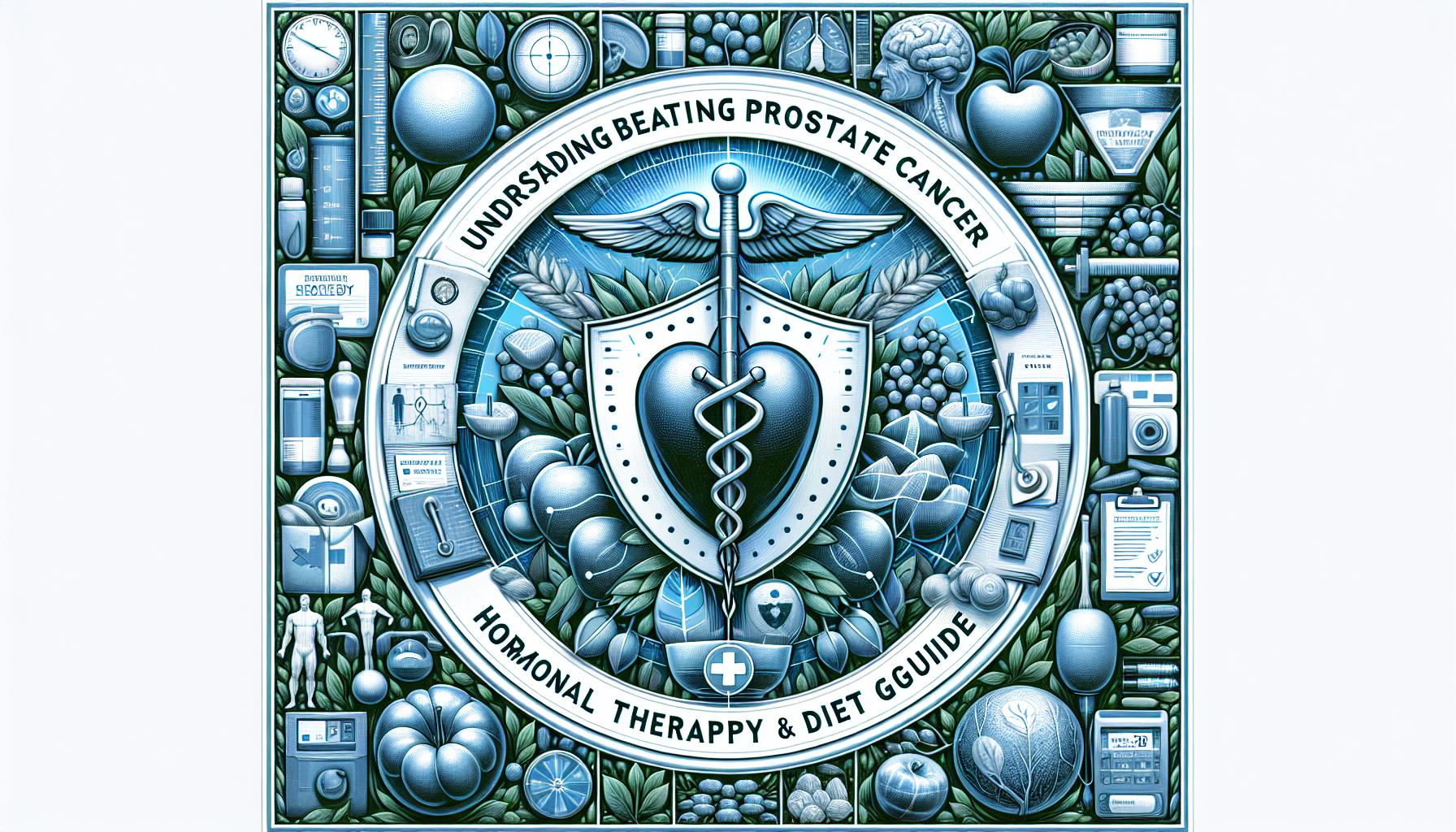Introduction
When the going gets tough, the tough get going - and nothing exemplifies this more than confronting the challenge of battling prostate cancer. Specifically, let’s zero in on the part played by hormonal therapy and diet. Is there a connection? You bet there is! These two elements should not be viewed as separate entities. On the contrary, they interplay significantly in our journey to comprehend, and conquer, this cancer type. We’ll delve deeper into this topic throughout the article, laying bare the intricacies of hormonal therapy and diet in the broader context of prostate cancer.
Hormonal Therapy: A Lifeline
Prostate cancer, a dark cloud that looms over many men’s lives, can be thwarted through hormonal therapy. This palliative treatment method doesn’t beat around the bush; it directly targets hormones that drive prostate cancer’s growth. This delicate dance between hormonal therapy and our bodies affect how we manage the disease.
Riding the Wave of Hormone Therapy
Understanding hormonal therapy requires grasping a key medical tenet: It’s not as simple as it may seem. Prostate cancer is not a lone gunman but an entire army of rogue cells that need a specific fuel to thrive: male hormones. The objective, thus, of hormone therapy is to cut off the fuel supply to the enemy camp, making this medical move essentially a toppling domino effect.
Dietary Considerations: Not Just an Afterthought
Ever heard of the saying, “You are what you eat”? In the context of prostate cancer, this holds more weight than you might think. A patient’s diet can tip the scale in favor of recovery and may even alleviate symptoms, making it just as vital as the battle plan concocted in the doctor’s office.
Titbit on Dietary Impact
In the vast sea of dietary components, certain nutrients stand out. For instance, omega-3 fatty acids have been recognised to contribute positively to managing prostate cancer, putting fish dishes and meals high in healthy fats, not on the back-burner anymore. The health stakes are high, and what’s on the plate matters.
Interplay of Hormonal Therapy and Diet
It’s not rocket science - hormonal therapy and diet go hand-in-hand in battling prostate cancer. Like two sides of the same coin, they work symbiotically to help keep the proverbial grim reaper at bay. But how do they interact? Let’s take a closer look.
The Dynamic Duo: Therapy and Food
The connection is surprisingly straightforward – as hormonal therapy deceives cancer cells into a false sense of security, the diet swoops in, fortifying the body with essential minerals and nutrients. Like a cornucopia of health benefits, the pairing operates as a synergistic duo to combat prostate cancer from multiple fronts.
Conclusion
Call it what you want—a battle, a struggle, or a journey—the fight against prostate cancer remains a multifaceted endeavor. In this labyrinth of challenges, hormonal therapy and diet emerge as two potent allies. Armed with this valuable knowledge, patients can engage in the fight, knowing they’re utilizing all available resources to their advantage.
Frequently Asked Questions
1. What are some common side effects of hormonal therapy for prostate cancer?
Side effects vary among patients but may include fatigue, hot flashes, decreased sexual desire, and memory problems.
2. Which foods are recommended for a prostate-cancer friendly diet?
Foods rich in omega-3 fatty acids, vegetables, fruits, and foods low in saturated fats are generally recommended.
3. Does hormonal therapy for prostate cancer guarantee a cure?
No, hormonal therapy for prostate cancer is mainly used to slow the progression of the disease and alleviate symptoms.
4. Does diet alone have the power to prevent prostate cancer?
While a healthy diet contributes significantly to overall well-being and cancer prevention, it’s crucial to note cancer’s etiology is multifactorial and not solely dependent on diet.
5. How long will I need hormone therapy if I have prostate cancer?
The duration of hormone therapy varies from patient to patient based on factors like the stage of cancer, the patient’s health status, and the treatment’s effectiveness.


